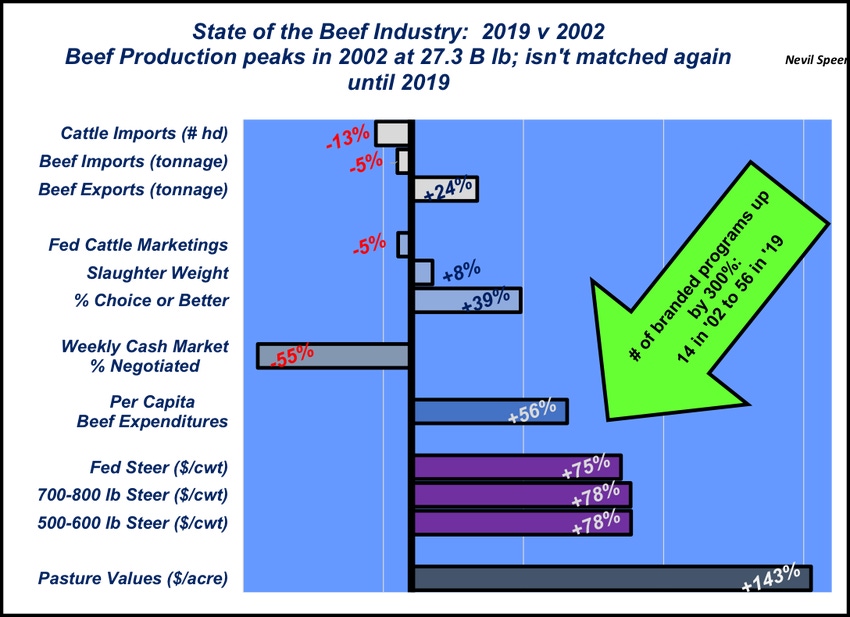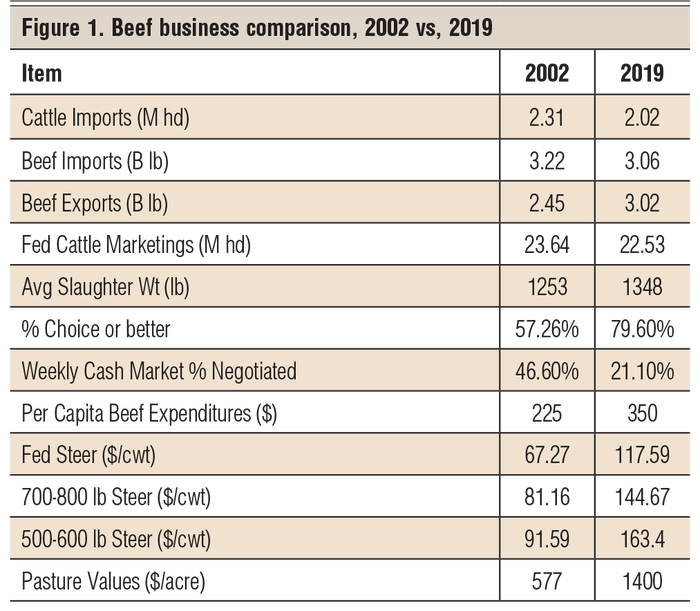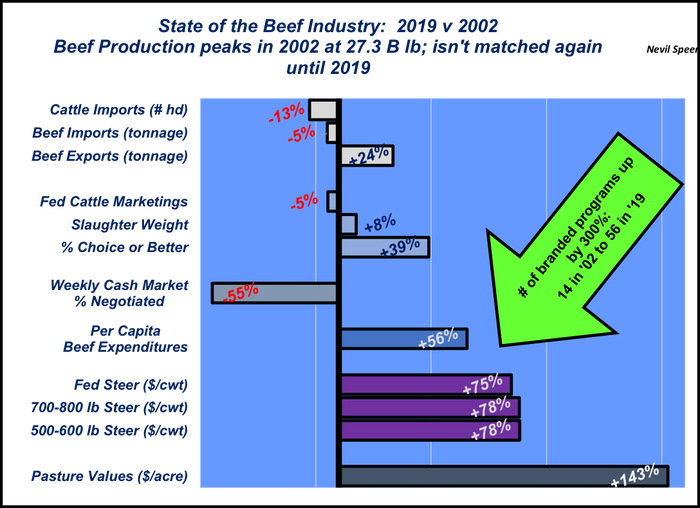State of the Beef Industry: ’19 vs ‘02
It’s easy to get caught up in the emotions of today’s chaotic market. But some historical perspective might help.
May 21, 2020

COVID has wreaked havoc on the beef industry. That reality hasn’t been missed even by the most casual observers. You don’t have to look very far to find articles covering beef shortages and/or the recent surge in the live-to-cutout price spread (another discussion for another day in this column).
The current situation is challenging! But that’s when it’s also most important to back up and take a broader view to ensure we’re seeing things clearly. For the beef industry, the best way to do that comes from comparing 2019 versus 2002.
Why 2002? Because that’s the last time the industry generated a massive 27.3 billion pounds of beef in a single year. Therefore, the ‘19/’02 comparison removes year-over-year differences in beef production.
This week’s illustration depicts those differences. The comparative data looks like this:

By all counts, the beef industry is in better shape versus 2002:
Fewer imports
Bigger exports
Smaller carbon footprint
Increased consumer spending
Higher cattle prices
Better land values.
What’s more, that’s happened through BSE, ethanol, the financial crisis, a massive drought-induced cowherd liquidation, and the recent Tyson fire, which is included in the 2019 data.
No doubt, some would argue the erosion of the negotiated cash trade has hurt the industry. But in reality, the occurrence has enabled the industry to move from a commodity mindset to facilitating more synchronized, value-added supply chains. That ultimately established huge growth in the number of branded beef programs – inherently de-commoditizing the business, improving beef’s quality and consistency and creating more loyal consumers as a result. The manifestation being stronger consumer spending – the anchor of all revenue entering the industry.
As alluded above, in the middle of very difficult times it’s easy to lose sight of the larger picture. Howard Marks, co-chairman at Oaktree Capital, puts it this way: “…people make each other crazy. And when times are bad…they depress each other.”
The point being, emotion often drives decision making when the market is turmoil. That generally doesn’t turn out well.

Instead, we need to look at the data. In this case it highlights a positive reality: The beef industry has been trending in a positive direction for nearly two decades and remains on solid footing.
That’s largely occurred because of free market forces and voluntary exchange. And all the while, the Beef Checkoff has been successfully solidifying the industry’s competitiveness in the marketplace along the way.
With all that in mind, turning back the clock won’t rectify the current challenges due to COVID-19. To the contrary, that’s an exercise of missing the forest for the trees.
Nevil Speer is based in Bowling Green, Ky. and serves as director of industry relations for Where Food Comes From (WFCF). The views and opinions expressed herein do not necessarily reflect those of WFCF or its shareholders. He can be reached at [email protected]. The opinions of the author are not necessarily those of beefmagazine.com or Farm Progress.
About the Author(s)
You May Also Like




.png?width=300&auto=webp&quality=80&disable=upscale)
